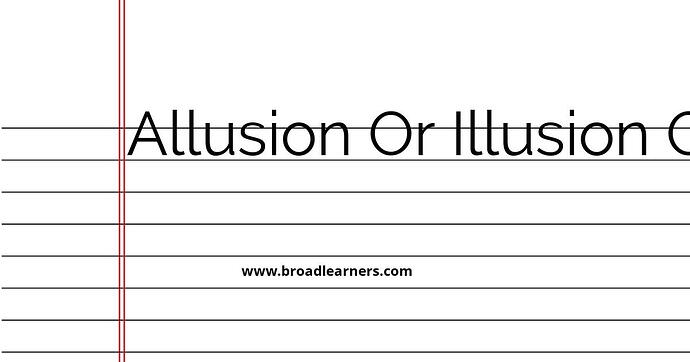'Allusion', 'illusion', and 'elusion' are commonly confused words in English grammar. Understanding the difference between 'allusion', 'illusion', and 'elusion' is important to use them correctly in written and spoken English.
'Allusion' is a noun that refers to a brief or indirect reference to a person, place, thing, or event. It is often used to make a comparison or to evoke certain thoughts or feelings.
'Illusion' is a noun that refers to a false perception or belief. It is something that appears to be real or true but is actually not.
'Elusion' is a noun that refers to the act of evading or escaping from something or someone.
Let's take a closer look at the meanings and usage of 'allusion', 'illusion', and 'elusion'.
| 'Allusion' | 'Illusion' | 'Elusion' |
|---|---|---|
| The word 'allusion' is used to make a reference or comparison. | The word 'illusion' is used to describe something that appears to be real but is not. | The word 'elusion' is used to describe the act of evading or escaping. |
|
|
|
To remember the difference between 'allusion', 'illusion', and 'elusion', it can be helpful to understand their specific meanings and usage.
Here are some examples of correct usage:
- The poem contains an allusion to Greek mythology.
- Don't be fooled by the illusion of success.
- The suspect eluded the authorities by changing his appearance.
Remembering the correct usage of 'allusion', 'illusion', and 'elusion' will improve your grammar and communication skills.
